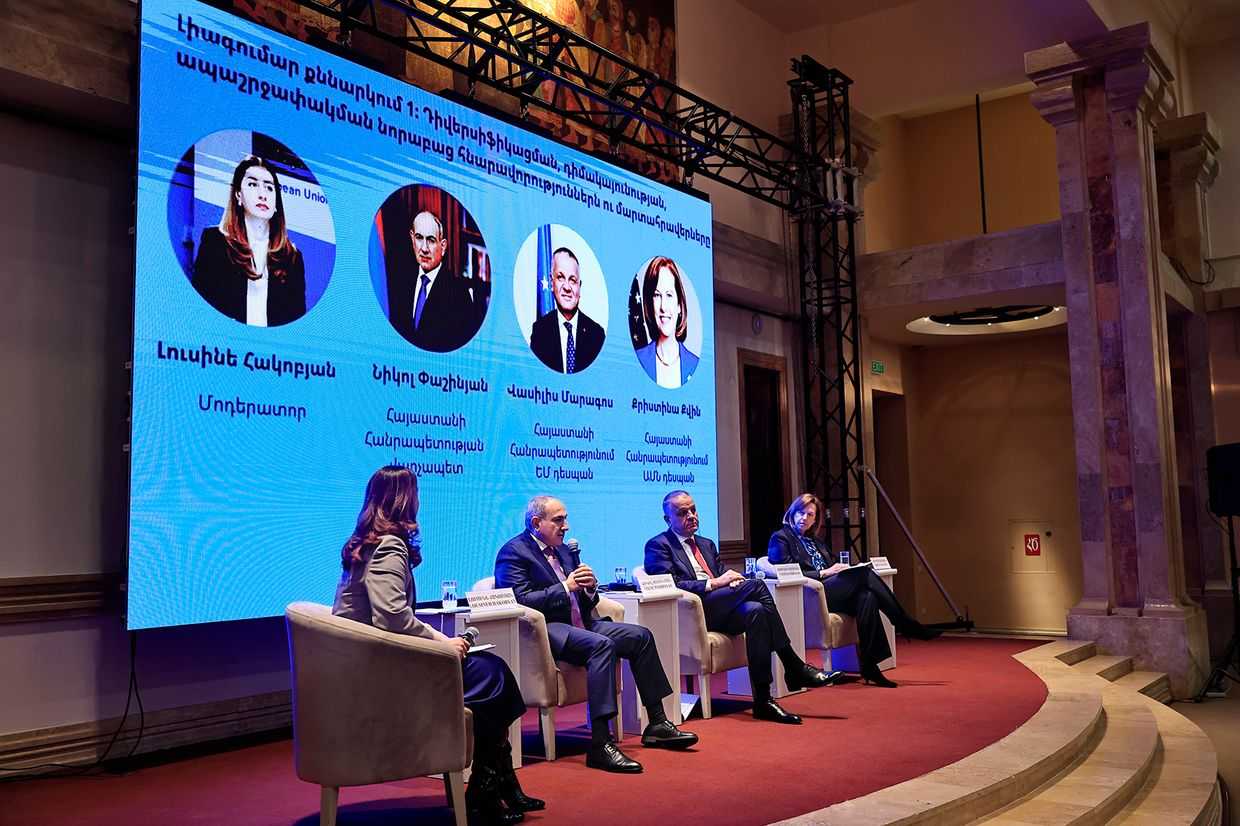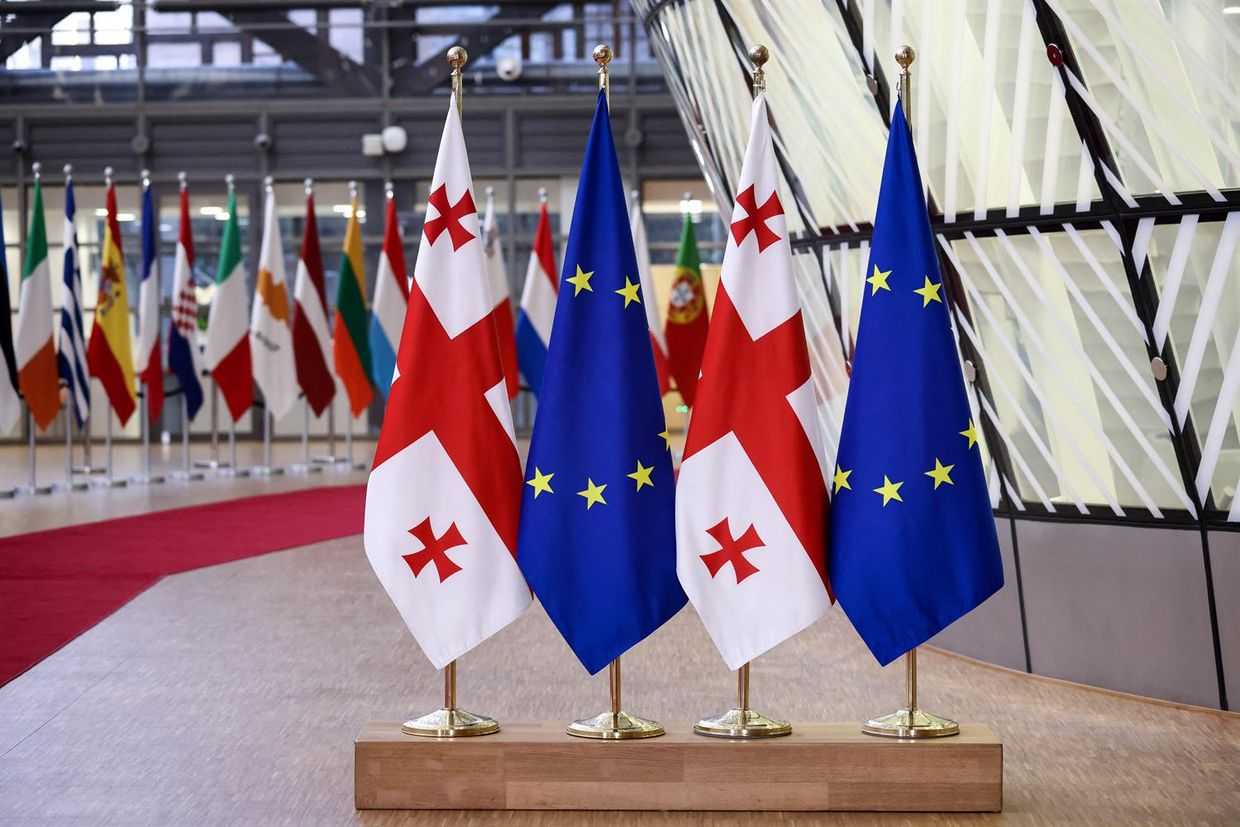

Georgia has taken no steps to enhance gender equality and equal treatment of minority groups since 2017, according to a report assessing the government’s progress in its 2017–2020 EU Association Agenda.
The Agenda is the government and EU’s joint priorities for implementing the 2013 Georgia–EU Association Agreement, which granted Georgia access to the EU’s Deep and Comprehensive Free Trade Area.
The report was prepared in December 2018 by a group of leading civil society organisations with the support of the Open Society Georgia Foundation.
One of six fields the document reviews was ‘equal treatment’, which was prepared by women’s rights group Sapari.
The report emphasised a lack of developments after Parliament rejected a bill on mandatory gender quotas in March 2018. The bill, put forward by several women’s rights groups and signed by 37,000 voters, would have required parties to field an equal number of men and women as candidates.
Despite a promise from Parliamentary Speaker Irakli Kobakhidze that the ruling party would initiate a similar bill within a week, no such bill was put forward.
[Read about the bill on OC Media: Georgian parliament rejects gender quota bill]
‘The continued horizontal and vertical segregation of the labour market with the result that women remain mainly concentrated in low-paid jobs is an acute problem in Georgia, which has not been addressed by the government’, the document said.
It elaborated that ‘to date, no actions have been taken to increase the economic activity of women and address the problem of the 35% wage gap between men and women’.
The report also said that despite the considerable economic inequality between men and women in Georgia, government action plans and policies hardly mention women.
‘In 2018, Georgia adopted the Human Rights Action Plan 2018–2020 covering some aspects regarding women’s economic activities, though major state action plans on the economy still do not focus on women’s economic empowerment’, the document said.
However, it also found that the government succeeded in strengthening implementation of laws against gender-based violence, including by raising the awareness of the public and of specific groups, such as the police.
‘The number of investigations increased significantly. In the first six months of 2018, criminal charges were issued for domestic crimes in 1,933 cases; this equals the total number of charges issued in 2017’, the document said.
‘Queer people face systematic violence’
Queer people suffer from numerous systemic violations of their rights and freedoms in Georgia, according to the report.
It said that discriminatory attitudes and stigma towards queer people was high, including among politicians, the police, and medical personnel.
‘Freedom of expression and assembly remain a challenge. Whereas in 2017, members of the LGBTQI community were able to have an event to mark the International Day Against Homophobia (IDAHO) in a restricted area and subject to time limitations, in 2018 all the LGBTQI community organisations in Georgia unanimously refused to stage a demonstration, as the state failed to guarantee a risk-free environment for the exercise of rights of free expression and assembly’, the report said.
The document put a special emphasis on transgender people who are forced to undergo sex reassignment surgery in order to change the sex markers on their ID documents and birth certificates.
‘Despite the deep, systemic problems LGBQI [people] face in Georgia, the state still omits Sexual Orientation, Gender Identity and Expression, and Sex Characteristics (SOGIESC) issues in the national Human Rights Action Plans’, the report said.
Religious and ethnic minorities
The report said that religious minorities in Georgia are often denied construction permits by local authorities on discriminatory grounds, which it said was part of a wider discriminatory and arbitrary state policy against religious minorities.
‘The State Agency for Religious Issues was created in 2014 and is heavily criticised by civil society for its attempts to gain control over religious organisations’, the document said
The report said that the Georgian government’s funding of just four minority religious organisations was discriminatory.
The report cited local civil society groups as calling on the government to review and substantially change its strategy and approaches towards non-dominant religious organisations.
In terms of ethnic minorities, the document said the biggest challenge for them was a lack of knowledge of the Georgian language.
‘Existing programmes and textbooks are not sufficient to remedy this problem, and it is obvious that language barriers hinder, for example, the social integration of Azerbaijani and Armenian communities in Georgia’, the document said.
It elaborated that for the past two years, no new programmes or policies enhancing access to education were developed by the government.
‘The state has not developed a unified strategy nor an action plan to support greater integration of ethnic minorities in all levels of education’, the report said.
People with disabilities
The authors of the document said that no significant improvement had been made regarding the rights of people with disabilities in the past two years.
‘A fundamental challenge continues to be the low level of participation of people with disabilities in the Georgian labour market, the educational system and in social and political life in general’, the report said.
It said that realisation of these rights was highly problematic for people with disabilities especially outside urban centres which, according to the document, is a result of ‘legislative gaps and the blatant absence of a mechanism that could monitor discrimination and then also impose penalties’.









